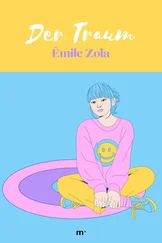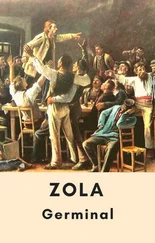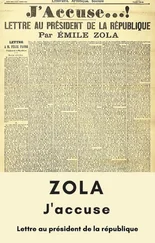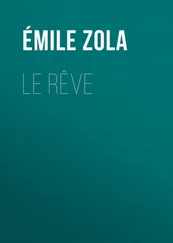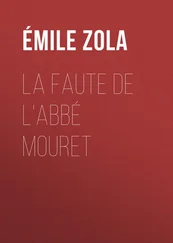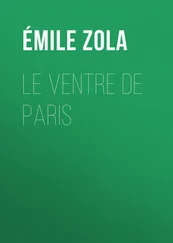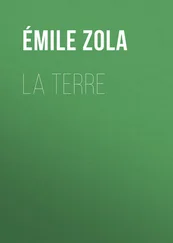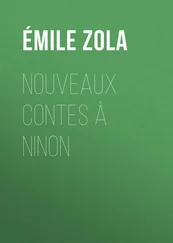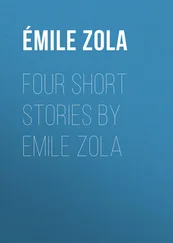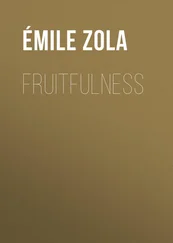Émile Zola - His Masterpiece
Здесь есть возможность читать онлайн «Émile Zola - His Masterpiece» — ознакомительный отрывок электронной книги совершенно бесплатно, а после прочтения отрывка купить полную версию. В некоторых случаях можно слушать аудио, скачать через торрент в формате fb2 и присутствует краткое содержание. Жанр: literature_19, foreign_antique, foreign_prose, на английском языке. Описание произведения, (предисловие) а так же отзывы посетителей доступны на портале библиотеки ЛибКат.
- Название:His Masterpiece
- Автор:
- Жанр:
- Год:неизвестен
- ISBN:нет данных
- Рейтинг книги:5 / 5. Голосов: 1
-
Избранное:Добавить в избранное
- Отзывы:
-
Ваша оценка:
- 100
- 1
- 2
- 3
- 4
- 5
His Masterpiece: краткое содержание, описание и аннотация
Предлагаем к чтению аннотацию, описание, краткое содержание или предисловие (зависит от того, что написал сам автор книги «His Masterpiece»). Если вы не нашли необходимую информацию о книге — напишите в комментариях, мы постараемся отыскать её.
His Masterpiece — читать онлайн ознакомительный отрывок
Ниже представлен текст книги, разбитый по страницам. Система сохранения места последней прочитанной страницы, позволяет с удобством читать онлайн бесплатно книгу «His Masterpiece», без необходимости каждый раз заново искать на чём Вы остановились. Поставьте закладку, и сможете в любой момент перейти на страницу, на которой закончили чтение.
Интервал:
Закладка:
Then suddenly changing the conversation: ‘By the way,’ he said, ‘my miserly father has apologised. He is afraid I shall drag his name through the mud, so he sends me a hundred francs a month now. I am paying my debts.’
‘Debts! you are too careful to have any,’ muttered Sandoz, with a smile.
In fact, Jory displayed a hereditary tightness of fist which much amused his friends. He managed to lead a profligate life without money and without incurring debts; and with the skill he thus displayed was allied constant duplicity, a habit of incessantly lying, which he had contracted in the devout sphere of his family, where his anxiety to hide his vices had made him lie about everything at all hours, and even without occasion. But he now gave a superb reply, the cry of a sage of deep experience.
‘Oh, you fellows, you don’t know the worth of money!’
This time he was hooted. What a philistine! And the invectives continued, when some light taps on one of the window-panes suddenly made the din cease.
‘She is really becoming a nuisance,’ said Mahoudeau, with a gesture of annoyance.
‘Eh? Who is it? The herbalist woman?’ asked Jory. ‘Let her come in; it will be great fun.’
The door indeed had already been opened, and Mahoudeau’s neighbour, Madame Jabouille, or Mathilde, as she was familiarly called, appeared on the threshold. She was about thirty, with a flat face horribly emaciated, and passionate eyes, the lids of which had a bluish tinge as if they were bruised. It was said that some members of the clergy had brought about her marriage with little Jabouille, at a time when the latter’s business was still flourishing, thanks to the custom of all the pious folk of the neighbourhood. The truth was, that one sometimes espied black cassocks stealthily crossing that mysterious shop, where all the aromatic herbs set a perfume of incense. A kind of cloistral quietude pervaded the place; the devotees who came in spoke in low voices, as if in a confessional, slipped their purchases into their bags furtively, and went off with downcast eyes. Unfortunately, some very horrid rumours had got abroad – slander invented by the wine-shop keeper opposite, said pious folks. At any rate, since the widower had re-married, the business had been going to the dogs. The glass jars seemed to have lost all their brightness, and the dried herbs, suspended from the ceiling, were tumbling to dust. Jabouille himself was coughing his life out, reduced to a very skeleton. And although Mathilde professed to be religious, the pious customers gradually deserted her, being of opinion that she made herself too conspicuous with young fellows of the neighbourhood now that Jabouille was almost eaten out of house and home.
For a moment Mathilde remained motionless, blinking her eyes. A pungent smell had spread through the shop, a smell of simples, which she brought with her in her clothes and greasy, tumbled hair; the sickly sweetness of mallow, the sharp odour of elderseed, the bitter effluvia of rhubarb, but, above all, the hot whiff of peppermint, which seemed like her very breath.
She made a gesture of feigned surprise. ‘Oh, dear me! you have company – I did not know; I’ll drop in again.’
‘Yes, do,’ said Mahoudeau, looking very vexed. ‘Besides, I am going out; you can give me a sitting on Sunday.’
At this Claude, stupefied, fairly stared at the emaciated Mathilde, and then at the huge vintaging woman.
‘What?’ he cried, ‘is it madame who poses for that figure? The dickens, you exaggerate!’
Then the laughter began again, while the sculptor stammered his explanations. ‘Oh! she only poses for the head and the hands, and merely just to give me a few indications.’
Mathilde, however, laughed with the others, with a sharp, brazen-faced laughter, showing the while the gaping holes in her mouth, where several teeth were wanting.
‘Yes,’ resumed Mahoudeau. ‘I have to go out on some business now. Isn’t it so, you fellows, we are expected over yonder?’
He had winked at his friends, feeling eager for a good lounge. They all answered that they were expected, and helped him to cover the figure of the vintaging girl with some strips of old linen which were soaking in a pail of water.
However, Mathilde, looking submissive but sad, did not stir. She merely shifted from one place to another, when they pushed against her, while Chaine, who was no longer painting, glanced at her over his picture. So far, he had not opened his lips. But as Mahoudeau at last went off with his three friends, he made up his mind to ask, in his husky voice:
‘Shall you come home to-night?’
‘Very late. Have your dinner and go to bed. Good-bye.’
Then Chaine remained alone with Mathilde in the damp shop, amidst the heaps of clay and the puddles of water, while the chalky light from the whitened windows glared crudely over all the wretched untidiness.
Meantime the four others, Claude and Mahoudeau, Jory and Sandoz, strolled along, seeming to take up the whole width of the Boulevard des Invalides. It was the usual thing, the band was gradually increased by the accession of comrades picked up on the way, and then came the wild march of a horde upon the war-path. With the bold assurance of their twenty summers, these young fellows took possession of the foot pavement. The moment they were together trumpets seemed to sound in advance of them; they seized upon Paris and quietly dropped it into their pockets. There was no longer the slightest doubt about their victory; they freely displayed their threadbare coats and old shoes, like destined conquerors of to-morrow who disdained bagatelles, and had only to take the trouble to become the masters of all the luxury surrounding them. And all this was attended by huge contempt for everything that was not art – contempt for fortune, contempt for the world at large, and, above all, contempt for politics. What was the good of all such rubbish? Only a lot of incapables meddled with it. A warped view of things, magnificent in its very injustice, exalted them; an intentional ignorance of the necessities of social life, the crazy dream of having none but artists upon earth. They seemed very stupid at times, but, all the same, their passion made them strong and brave.
Claude became excited. Faith in himself revived amidst the glow of common hopes. His worry of the morning had only left a vague numbness behind, and he now once more began to discuss his picture with Sandoz and Mahoudeau, swearing, it is true, that he would destroy it the next day. Jory, who was very short-sighted, stared at all the elderly ladies he met, and aired his theories on artistic work. A man ought to give his full measure at once in the first spurt of inspiration; as for himself, he never corrected anything. And, still discussing, the four friends went on down the boulevard, which, with its comparative solitude, and its endless rows of fine trees, seemed to have been expressly designed as an arena for their disputations. When they reached the Esplanade, the wrangling became so violent that they stopped in the middle of that large open space. Beside himself, Claude called Jory a numskull; was it not better to destroy one’s work than to launch a mediocre performance upon the world? Truckling to trade was really disgusting. Mahoudeau and Sandoz, on their side, shouted both together at the same time. Some passers-by, feeling uneasy, turned round to look, and at last gathered round these furious young fellows, who seemed bent on swallowing each other. But they went off vexed, thinking that some practical joke had been played upon them, when they suddenly saw the quartette, all good friends again, go into raptures over a wet-nurse, dressed in light colours, with long cherry-tinted ribbons streaming from her cap. There, now! That was something like – what a tint, what a bright note it set amid the surroundings! Delighted, blinking their eyes, they followed the nurse under the trees, and then suddenly seemed roused and astonished to find they had already come so far. The Esplanade, open on all sides, save on the south, where rose the distant pile of the Hotel des Invalides, delighted them – it was so vast, so quiet; they there had plenty of room for their gestures; and they recovered breath there, although they were always declaring that Paris was far too small for them, and lacked sufficient air to inflate their ambitious lungs.
Читать дальшеИнтервал:
Закладка:
Похожие книги на «His Masterpiece»
Представляем Вашему вниманию похожие книги на «His Masterpiece» списком для выбора. Мы отобрали схожую по названию и смыслу литературу в надежде предоставить читателям больше вариантов отыскать новые, интересные, ещё непрочитанные произведения.
Обсуждение, отзывы о книге «His Masterpiece» и просто собственные мнения читателей. Оставьте ваши комментарии, напишите, что Вы думаете о произведении, его смысле или главных героях. Укажите что конкретно понравилось, а что нет, и почему Вы так считаете.

